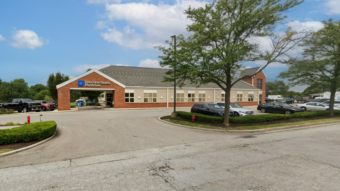Two recent client situations remind me of a critical lease issue that sometimes gets overlooked. In each situation, the tenant entered into a retail lease where rent would begin within “x” days after the execution date of the lease. Under normal circumstances, the free rent period in both leases would have been sufficient for the tenant to complete its build out. Unfortunately, both tenants ran into problems obtaining permits and/or completing construction.
In one deal, the tenant was forced to pay rent before opening for business. In the other, the tenant was forced to terminate the transaction as the result of the municipality placing a moratorium on issuing any additional permits for the tenant’s particular use.
These two situations emphasize the importance of fully researching, and carefully negotiating, the rent commencement date. If the rent commencement date depends solely on the date of the lease, the tenant takes on all of the risk for obtaining permits, approvals, business licenses and the like. In those situations, it is incumbent upon and critical for the tenant to thoroughly research the permit and approval process with the applicable municipality before signing the lease, including whether the municipality requires any special license for the business in question.
Failing to fully review potential use and/or construction permit issues, can result in unfortunate delays for the tenant. Fortunately, there are solutions to better protect the tenant.
Consider basing the rent commencement date on when the tenant obtains permits and approvals, or even putting the permit and approval process in the hands of the landlord. Landlords can likewise protect themselves by adding timeframes for when permits must be obtained, or by retaining the right to intervene in the tenant’s permitting process if the tenant fails to obtain permits in a timely manner.
A related issue is whether the landlord must complete any work before the tenant can commence construction. To ensure that the timelines in the lease are achievable, and that neither the tenant nor the landlord is backed into a corner with unreasonable schedules, the timing of this work in relation to the tenant’s construction plans must be carefully considered. Landlord construction delays could have considerable effects on the tenant’s opening timetable. Such concerns can be addressed in part by extending tenants’ free rent period equivalent to the delay caused by landlord construction and other alternatives.
With more non-traditional businesses going into shopping centers, such as medical offices and sports or personal training outfits, the permitting, construction timing and permitting and approval process becomes more complicated for both landlord and tenant. The process, from letter of intent through lease negotiation, will require more careful analysis and attention to these details. Proper research into required approvals and possible construction pitfalls will minimize unexpected surprises down the road.
Gary Kravitz is a shareholder at Southfield, Mich.-based law firm Maddin, Hauser, Roth & Heller, P.C., where he practices within the firm’s Real Estate, Corporate and Business, Franchise and Distribution, Lending and Finance, and Tax groups.



